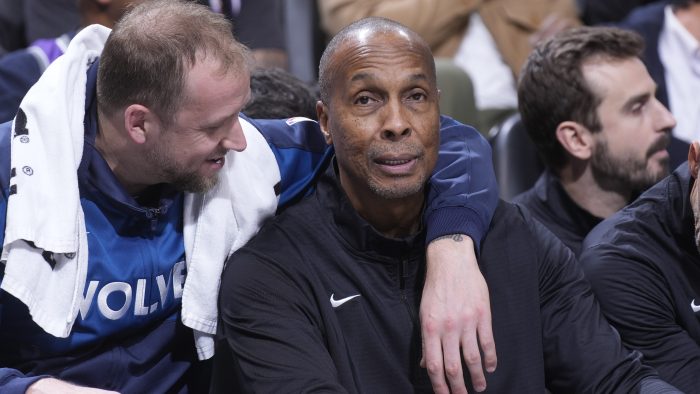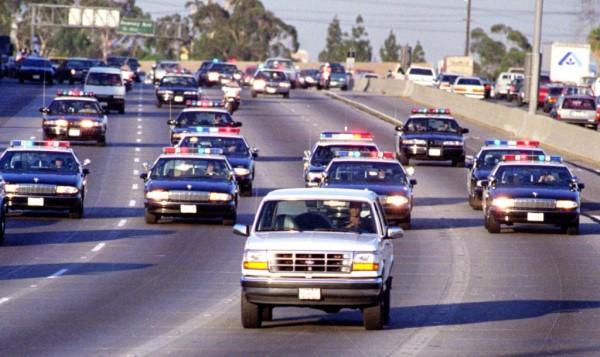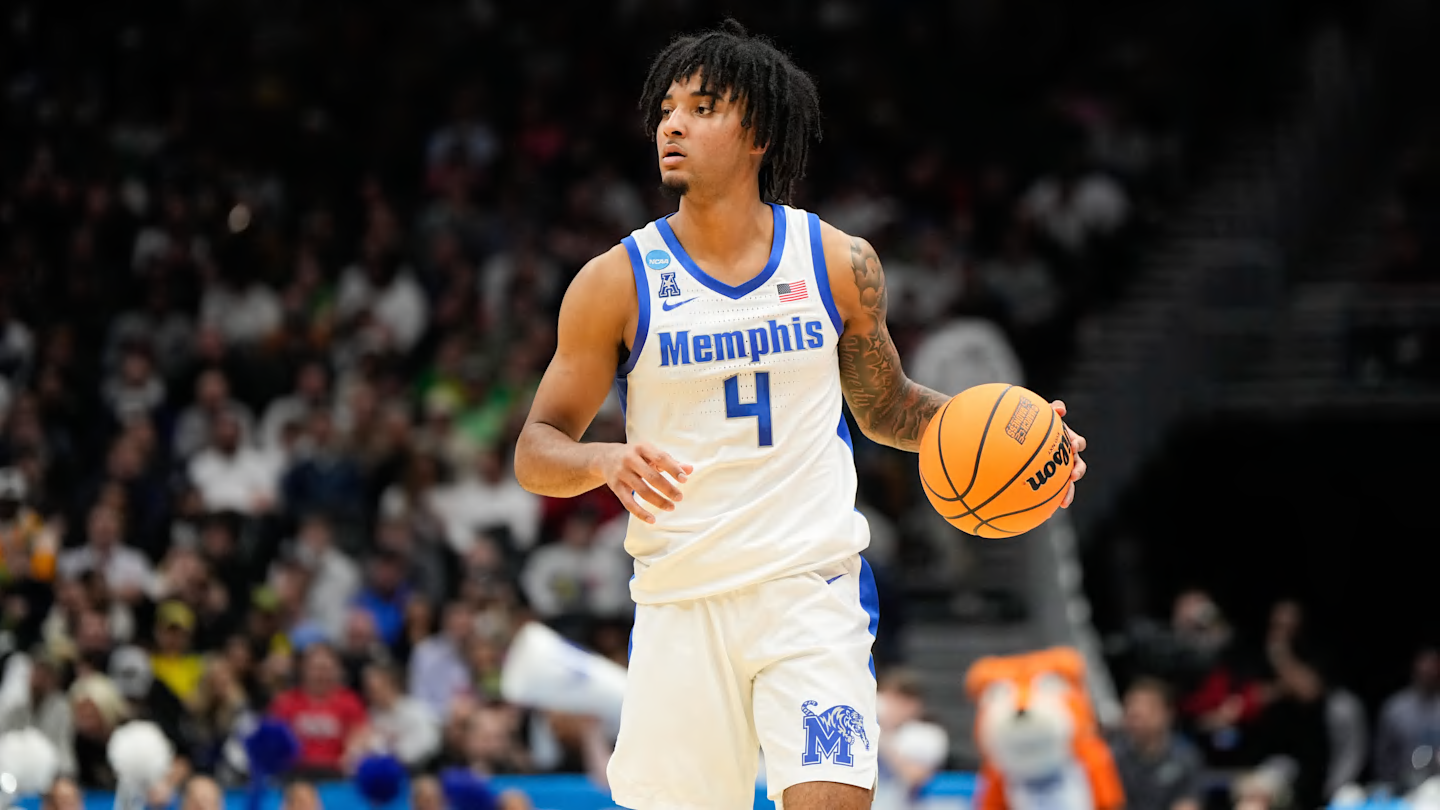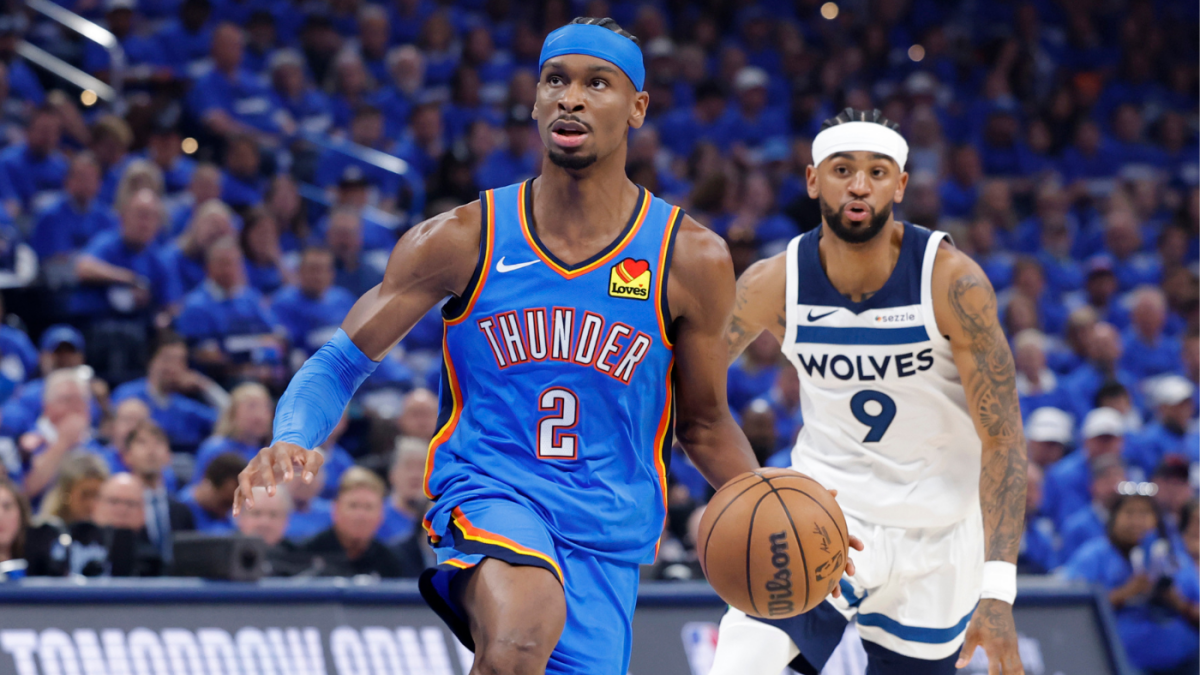MINNEAPOLIS – Longtime Minnesota Timberwolves assistant coach Elston Turner was standing in a tunnel near the court when Oklahoma City Thunder center Isaiah Hartenstein stopped to give his old coach a high-five about 90 minutes before the start of their Western Conference finals game.
“I’ve coached everybody. I coached him in Houston. Some of the staff I coached with now, I coached them when they were players,” Turner said prior to the Timberwolves’ 128-126 loss to the Thunder in Game 4 on Monday night.
Turner has coached in all but two seasons since beginning his assistant coaching career with the Portland Trail Blazers in 1996. He was also an assistant with the Sacramento Kings (twice), Houston Rockets, Phoenix Suns and Memphis Grizzlies, and has coached under Timberwolves head coach Chris Finch since 2021.
As a player, the former Ole Miss guard played in the NBA for eight seasons, averaging 4.7 points and 2.2 rebounds in 505 regular-season games for the Dallas Mavericks, Denver Nuggets (twice) and Chicago Bulls. He also played in the Continental Basketball Association and in Italy and Greece.
Turner has never landed an NBA head coaching job despite seven interviews over the years. The 65-year-old says he has been perplexed by some of the missed opportunities but is at peace with it likely being past his prime to get a top job.
Turner’s Timberwolves hope to stave off elimination tonight in Oklahoma City as they are down 3-1 in the best-of-seven Western Conference finals.
“He has been a godsend to me as a first-time [NBA] head coach; to have all that experience next to you is invaluable,” Finch told Andscape. “I can be super fiery and emotional. He’s just super chill and easygoing. He’s really good with the guys. Teaches. Very patient. And then the other thing is he’s worked with [Rick] Adelman, [Mike] D’Antoni; these guys are offensive-minded coaches. He never gets into this offense-defense turf battles that a lot of coaching staffs fight. He understands that both sides of the ball are related to each other, offense affects defense and vice versa. …
“It’s definitely disappointing that he never got a head coaching job. He has all the characteristics of a great head coach. He has the relationships, the temperament and the basketball acumen. He also has the steadiness an 82-game season requires. He is not living or dying with any small victory or defeat.”
The following is a Q&A with Turner with Andscape in which he reflects on his NBA coaching career, explains how he is able to connect with NBA players who are much younger to him, how T-Wolves star Anthony Edwards compares to his former Bulls superstar teammate Michael Jordan, how coaching has evolved during his time, the state of African-American head coaches, the key to longevity and much more.
How would you describe the coaching experience over nearly 30 years?
First of all, it’s a blessing. I’ve seen they had the 50 greatest players in NBA history get their jackets. I’ve been around so long, I remember when I came in some of those guys were trying to get coaching jobs and couldn’t get it. A lot of people have tried to get these positions. So, I just feel like I’m blessed to have been around that long. I’ve seen a lot. I’ve seen the game change from inside out. I’ve seen the game change from an approach standpoint. We used to practice; training camp was a good month and there were two-a-days. Now we don’t even have two-a-days and training camp is one day. It’s changed, but it’s just been a hell of a ride from the standpoint of accomplishment.

John Rivera/Icon Sportswire via Getty Images
Over 27 years, sometimes you fall out of the mix. I didn’t coach two years. So, this is year 27. Out of the 27 years, I’ve been to the playoffs 21 times. Resume is good from that standpoint. …I had my share of interviews. About seven [NBA head coach] interviews.
Does it pain you that you never landed an NBA head coaching job?
Yes and no. From the standpoint of you’d like for it happen back then. Back then, yes. I coached with some good teams, good teachers, good resume. Everything was in place, and it just didn’t happen. Stuff that’s out of my control. It’s unbelievable some of the stuff that I heard. Some GMs would always call you to let you know their decision before it hits the media so you don’t see it. It was unbelievable some of the [reasons]. We got to roll with it, and now I’ve always just tried to be in the moment and always be loyal to the guy I’m working for and do my job. That’s why I’ve been around so many years.
Have you come to peace with it?
Oh yeah. I’m not worrying about that. My blessing is just being there teaching players. I get a kick out of that. This is my third or fourth conference finals. I haven’t been to the Finals. I’ve coached three or four All-Star Games. The resume is good. My life is good. My family’s good. So, I’m still living my dream man. I won’t let anything that’s out of my control put some salt into that.
How much longer do you want to coach?
I do pride myself in staying in shape. I’m in the weight room. I’m doing everything. I’m able to get on and off that plane with luggage at three o’clock in the morning and stand up to one these dudes if they want to try me. So, I’m going to go as long as I can. Right now, I don’t know. But I’m coming up on third base, getting ready to turn the corner and slide in home at some point. There’s other things I’d like to do, but I still enjoying it and winning. I’m part of a winning program with stuff they haven’t seen around here before. So, I’m still having fun.
What has basketball meant to your life?
In a strange way, it has taught me how to move people. And I use that in my personal life. If I had to do it all over again, obviously, I would major in psychology because coaching back then was like, ‘You better do this or else…’ That was coaching back then. Nowadays, players make 10 times more money than you in longer-term deals. So, you got to have a more polished approach to get them to move.
What’s important to them? Their family. Money. Obviously, your kids depend on you to do this right now. So, the tongue bashing is over. And I use that same approach with my family. So, it’s on-the-court, off-the-court friendships. It’s about making people respond to stuff that you say. I use that on and off the court. That’s one thing that basketball has taught me as opposed to other things like the competitive part. Being strong mentally, my parents taught me that. I just carried that. Basketball didn’t teach me that, but it’s an example of things that happen on and off the court. You have to have a certain mentality to deal with it with.
Who got you into coaching?
I played so long, probably played too long. I played so long all the coaches would ask me to show an example if they were explaining something… This was toward the end of my career. So, I was actually demonstrating a lot. And then my first job, and let me count that as a professional job, I was in CBA with the Quad City Thunder one year ‘94, ’95. And the man who gave me the break was P.J. Carlesimo. Spring back to 1980 when I was in college, we boycotted the Olympics if you can remember that far back. So, the National Invitational Tournament took a tour team to Italy and Yugoslavia. P.J. coached it. It was me, Eddie Johnson and all college guys. And he was at Seton Hall. And you remember P.J. when he first came in, he was like Bobby Knight and a bad boy as far as tongue lashing.

David Sherman/NBAE via Getty Images
And I just gave him all I had, man, and he remembered that. He was coaching Portland when Johnny Davis was on his staff and had gotten a [head coaching] job in Philly and there was an open spot. I don’t know if P.J. would remember that. He saw me at the [NBA] combine and gave me an interview and said, ‘Look, I remember how hard you worked for me. I want you on my staff.’ He gave me a job with Portland, that is how I get in.
How do you reflect on your playing career at Ole Miss and in the NBA? Do your players ever ask about it?
All the time, and it carries a little more weight when they know you’ve done what they’re doing now. And it’s a reminder that some of the things you say carry more weight — whether good, bad or indifferent, it’s the truth…
I say some things. When things get a little fired up in a meeting in a film room, the players think they know. ‘We ought to do it this way. We out to do it that way.’ I say some things that I can’t share. But basically, I said, ‘Hold up man, I’ve been around long before you. I’ve done this before and you don’t know more basketball than me. You wasn’t thought about. You weren’t even conceived yet when I started watching basketball.’ So, we do it in a comical way.
What is it like coaching All-Star guard Anthony Edwards?
He is a rare athlete. A rare basketball player. I say rare because you see his talent. And you can coach him hard and get on him and he will look you in the eye and say, ‘All right coach. I got you.’ And the exchange between player-coach, there have not been arguments, stuff that you sometime see and hear about player and coach.
So, whoever brought him along in his life did a hell of a job. He’s five years in and still 23. He still has maturing to do… But talent-wise, look here, offensively, he still has a few things. I played with Michael [Jordan] for two years, played against him longer than that. [Edwards] has that. You have to bring him along in certain spots defensively. On ball, he is great. Off ball, he has to do a little more anticipation.
How has the state of Black coaches changed from the time you got in to now? (Note: 17 of 30 NBA teams currently employ African American head coaches.)
From the time I got in, it was less than now. You got to understand that I’ve been around a minute. I don’t know what the percentage is now. And I know there’s been over the years more attention brought to bringing Black coaches on board. I’m happy to see it. I know the league is probably about 80% Black and if we’re able to play it and play it well why can’t we coach it? There’s no reason [we can’t]. So, those areas are another area that’s out of my control and I don’t really dive into it or sweat it where it gets me down. But I obviously pay attention to it.
I’m happy to see all the young guys come in instead of recycling all the old heads. And from where I stand, there’s always been assistant coaches that I couldn’t figure out why they didn’t get jobs. I remember Bob McAdoo in Miami, if I’m not mistaken, he was one of the one of the ones with the NBA Top 75 Anniversary jacket on. You can’t give this man a job? He’s one of the Top 75 greatest. So, McAdoo at the time, Patrick Ewing, those guys were on the bench [as coaches] for years and years and years. But as far as their [playing] careers, they were more dominant than me. So, I don’t feel alone as far as that. I know another job opens up, so many people put their name in there at one time. There was a time when NBA execs wanted to reach out and grab college coaches. It ain’t the same. I’ve seen a lot of them [college coaches] come in and bow back out saying, ‘I can’t control any of these dudes.’

Jordan Johnson/NBAE via Getty Images
What would you say to a young Black coach, or any coach for that matter, who aspires to be coaching in the NBA?
First of all, know your craft inside-out. You got to know what you’re doing. Know how to handle players or people. Definitely get that master’s in psychology. You got to get people to respond to whatever you say. And I don’t know if there’s any one formula. I swear I don’t. You keep grinding and you work your butt off. Obviously, that goes without me having to say it. Be loyal. There is a certain loyalty that has helped me along the way. But work your butt off. Know the crowd. Keep your relationships alive because everybody knows somebody different. Relationships are important… So always nurture those relationships. Me and P.J. had that relationship before prior to. He picked me out of how many hundreds of people? Keep your relationships alive.
What gets you excited when you come to the arena? What makes you still love this?
Well, the competition, No. 1. It’s the energy. I love the competition. I personally, from where I stand now, I love the chess match. There’s always something. They’re going to do something. Sometimes it’s game to game and in the middle of the game. Love that. I try to figure out how to stop somebody. They tweak this or we move and tweak that. So, that still excites me.
The hardest part, when I was started to coach, it was hard to do it in the middle of the game. You go back and watch film and you see, ‘Oh s—, we could’ve done this and that.’ It’s too late. It’s for the next game if you find it in the film session after the game’s over. So, you got to find it during the game, first quarter, second quarter, all that. So that excites me. Another thing is the teaching that you instill in the players and when you see that come to form on the court against another competitor, that gets me going. That’s what coaching is. Your land your expertise to somebody else who’s young. And when you see what you taught them, it’s something else.



